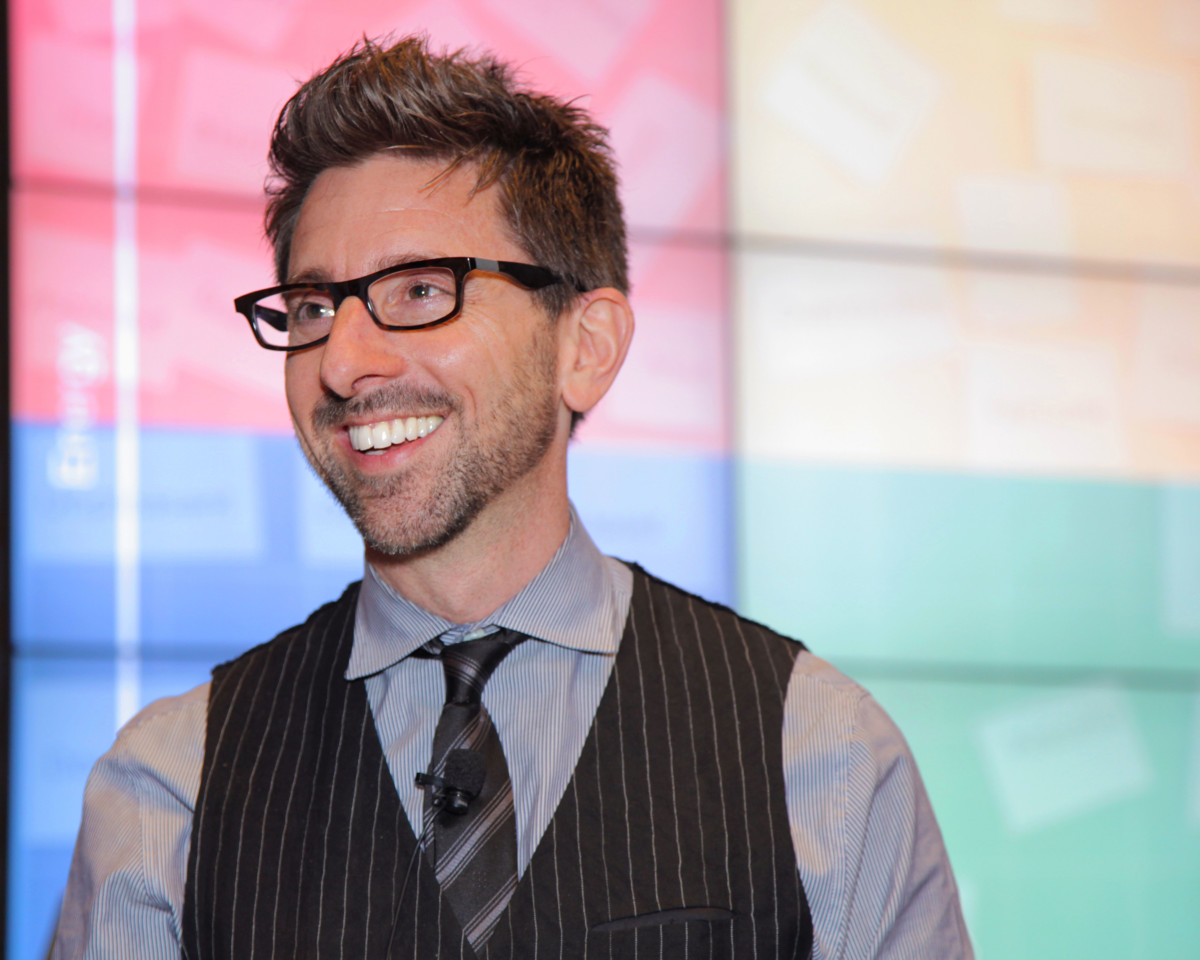Leigh Charlton, News Editor
@leighcourant
On Tuesday, November 29, both faculty members and parents attended presentations on emotional intelligence given by Dr. Marc Brackett of Yale University. The presentations sought both to clarify the general perplexity surrounding emotional intelligence as well as spark reflection on causes and solutions for student stress.
Some, such as English Department Chair Evan Remley, came away from the presentation with a greater understanding of the field of emotional intelligence. “My understanding, and this is not definitive, is that it’s about sort of how you’re able to handle the vicissitudes of life, like how you manage disappointment, anger, resentment- all these core experiences everyone has every day,” Mr Remley said. “Your emotional intelligence is the thing that kind of underpins all that stuff: what you do, how you handle it, how you move on from a setback.”
Mr. Remley was among the many faculty members that came to listen to the speaker. He found the content highly relevant to past discussions about the stress and anxiety that students feel at school. “I think it is relevant to us because it is one of the things that is on the faculty’s radar- and it has been raised by a lot of parents, students, and staff- is that there’s a lot of anxiety and stress among students,” Mr. Remley said. “A lot of people want to know some ways to approach that, to help with it and make it better. So I think that maybe this is one way to think about that.”

In fact, in a survey conducted by Dr. Brackett of 22,000 high school-aged teens, 75% of respondents listed negative words in conjunction with how they feel at school. The most frequently used words included “tired” (39%), “stressed” (29%), and “bored” (26%).
Principal Bill Egan felt that some of the statistics that Dr. Brackett presented reflected the problem of stress at large. “It was interesting listening to Dr. Brackett the other day, because he said that this is the first generation in America’s history where the students today are more stressed out than their parents,” he said. “That’s never a good thing, and while I think that we have an awesome community, we certainly want to make sure that you guys are achieving the best you possibly can in a healthy way.”
This discussion also prompted analysis of causes of student stress. “I think that we have the best student body in the state of Connecticut,” Principal Egan explained. “However, we’re a very driven community, both internally, where our students want to be the best that they possibly can, and externally, where we probably have some parental pressures. On top of that, we have our own educator pressures on some level because we’re trying to push people to be the best they can be.”
Dr. Brackett used the presentation as an opportunity to introduce RULER, an emotional intelligence model designed to help manage and regulate emotions. “Part of what Dr. Brackett’s conversation was about was his RULER model,” Principal Egan said. “That’s the ability to recognize, understand, label, express, and regulate your emotions. Think about in life when something happens to you. Sometimes it’s hard for me, personally, when I’m emotional, to understand why I’m emotional, to really see what it is and label it. That’s really what the RULER program is, is to be able to understand what it your emotions are, express them, and handle that.”
Mr. Remley found the presentation relevant to some programs that were recently integrated at the high school, but is unsure of any similar plans to incorporate Dr. Brackett’s methods. “We’ve done things like this before as a building, like the Connections program,” Mr. Remley said. “We looked at things like how to bond student bodies together and create connections among people and staff. I think that this is all in a similar vein, but in terms of the next step, I don’t think that one has been decided upon.”
Dr. Brackett’s presentation helped to bring awareness of emotional intelligence to the NCHS community. As of right now, however, there are no immediate plans to integrate the RULER approach into the high school. “In terms of long-term plans, I’m not sure yet,” Principal Egan said. “We’ll see what evolves with that, but certainly we’re committed to making student’s lives the best that they possibly can be here. We love all you guys and we want to make sure that you have a great time while you’re here at high school and be successful beyond.”
To learn more about emotional intelligence, follow Dr. Brackett on Twitter, @marcbrackett, or check out the Yale Center for Emotional Intelligence Facebook page.




